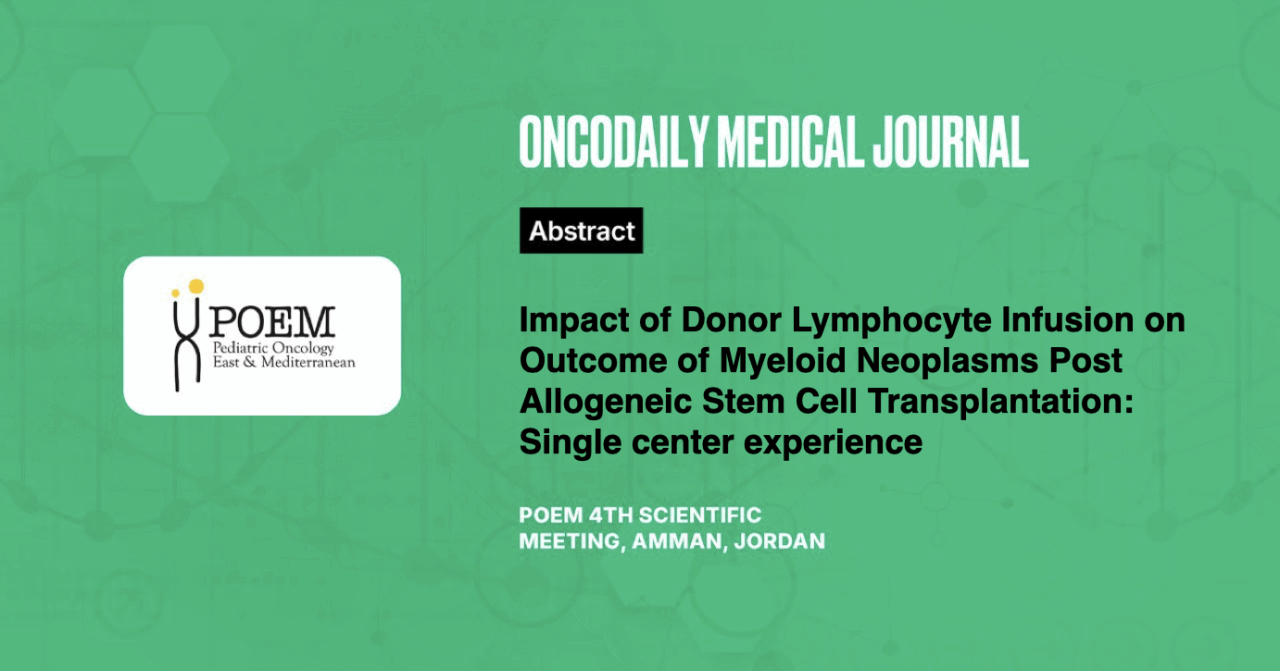Impact of Donor Lymphocyte Infusion on Outcome of Myeloid Neoplasms Post Allogeneic Stem Cell Transplantation: Single Center Experience
Abstract
Introduction: Disease relapse has been the main cause of treatment failure post-hematopoietic stem cell transplantation (HSCT) for myeloid neoplasm, with a 2-year overall survival (OS) of less than 20%. Donor lymphocyte infusion (DLI) can be a potential treatment option for patients with disease relapse post HSCT, with varying reports regarding efficacy and the cost of toxicities such as graft-versus-host disease (GVHD). Aim: To assess the overall survival and disease-free survival post donor lymphocyte infusion (DLI) for patients with myeloid neoplasms post HSCT.
Methodology: We conducted a retrospective review of pediatric patients with myeloid neoplasms who underwent HSCT and received DLI at Children’s Cancer Hospital Egypt, CCHE 57357, from January 2011 to October 2021.
Results: Forty-one patients underwent HSCT and subsequently received DLI at a median age of 10.3 years. Twenty-four patients had Acute Myeloid Leukemia, 11 patients had chronic myeloid leukemia, and 6 patients had Myelodysplastic syndrome. All patients received myeloablative conditioning and had HLA-matched sibling donors. Indications for DLI included mixed donor chimerism (5 patients), rising MRD (18 patients), and frank relapse (18 patients). All patients were off systemic immunosuppression at the time of DLI infusion. The median time from transplant to first DLI was 12 months. Eighteen patients received treatment before DLI infusion. Most of the patients received more than one infusion of DLI. Fourteen patients (34%) developed GVHD. Twenty-four patients relapsed post-DLI (58.5%) (19 AML, 1 CML, 4 MDS). Twenty-two patients (53.6%) died (16 AML, 4 MDS, 2 CML), 3 of them died out of non-relapse mortality. Event-free survival at 2 years was 37.3%, and overall survival rates at 2 years were 42.8%.
Conclusion: DLI appears to offer potential treatment options in myeloid patients who relapse or are at risk of relapse post HSCT, especially in low-income countries with limited resources, with acceptable complication and survival rates.





